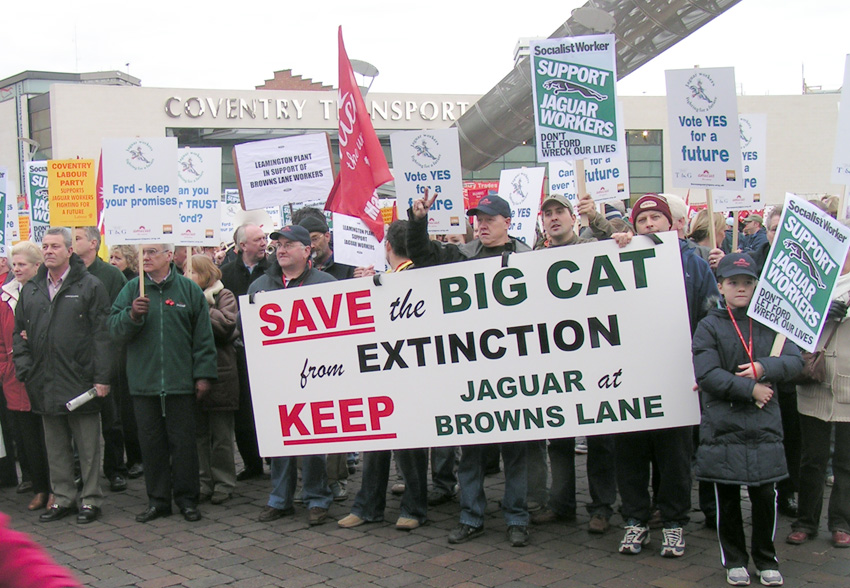
JAGUAR Land Rover is to shut its Halewood plant in Merseyside for nine days, in the latest development in the sharpening car manufacture crisis.
Jaguar has denied that the decision has come as a result of the spread of coronavirus. However, car manufacturers around the world have been severely affected by the parts’ factories shutting due to the coronavirus. China’s car market has ground to a halt as a result of the coronavirus.
Jaguar Land Rover does cite a collapse in car sales.
Jaguar Land Rover (JLR) is also ‘adjusting the production schedule at its Castle Bromwich and Solihull plants’.
The Merseyside plant, which employs just under 4,000 people, will close from 19 to 27 March. A spokeswoman said the company informed its workers of the closure on 13th January, before the severity of the virus outbreak became clear.
The Halewood production pause was related to the launch of vehicles such as the Range Rover Evoque plug-in hybrid as well as ‘to ensure market demand is balanced globally’, the spokeswoman said. The smaller Castle Bromwich and Solihull adjustments reflected fluctuating demand, she added.
In January, JLR, which is owned by India’s Tata Motors, announced the end of the night shift in Halewood, putting 500 jobs at risk.
Halewood and Solihull will also close for a week at Easter and a week at the end of May for Whitsun, in regular holidays that were scheduled in November.
The temporary closure highlights the acute crisis in the motor industry, even before Covid-19 triggered a sales slump in China.
Carmakers are cutting costs to invest in electric cars, while struggling with declining diesel sales.
Many manufacturers have felt the effects of the virus. JLR’s joint venture with the Chinese carmaker Chery in Changshu, near Shanghai, was forced to halt temporarily; it resumed on 24 February.
Ralf Speth, JLR’s outgoing chief executive, said the company was forced to fly parts such as key fobs in suitcases to get round the disruption to supply chains.
In January, the carmaker reported increased revenues in the last three months of 2019, but said sales had fallen by 2.3% year-on-year. A strong recovery in China, which accounts for a fifth of JLR’s sales, helped it to return to profit.
Industry experts have suggested JLR and other carmakers with significant exposure to China are likely to face problems as the slump in demand affects factories.